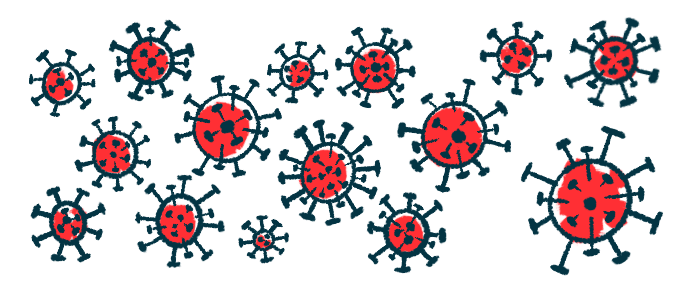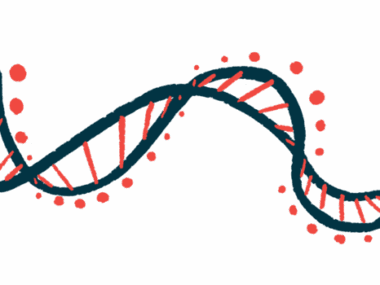COVID-19 linked with CF-like airway inflammation, study suggests
Cardiac glycosides restore protein, highlighting potential as therapy
Written by |

SARS-CoV-2, the virus that causes COVID-19, appears to induce the loss of CFTR protein in a cell-based airway model, replicating the inflammatory state seen in the lungs of people with cystic fibrosis (CF), a study suggested.
Treating cells with cardiac glycosides, a class of medicines that block the virus from interacting with cells, restored CFTR.
The findings “highlight the potential of cardiac glycosides as possible treatments to prevent SARS-CoV-2 infection, CFTR loss and the subsequent inflammatory response,” the researchers wrote.
The study, “Inflammation in the COVID-19 airway is due to inhibition of CFTR signaling by the SARS-CoV-2 spike protein,” was published in Scientific Reports.
COVID-19 is a disease marked by variable symptoms, including fever, fatigue, cough, breathing difficulties, and a loss of smell and taste. It is thought that the virus contributes to illness and death partly by inducing an excessive immune response and pro-inflammatory state in the airways. Sustained post-infection inflammation may also contribute to post-acute sequelae of COVID-19 (PASC), also called long COVID.
CFTR signaling blocked
While the exact cause of this pro-inflammatory state is unclear, some studies suggest pathways involved in virus-related inflammation are the same as those that cause inflammation in the CF lung. CF is caused by a lack of CFTR protein function, which, in addition to giving rise to typical CF symptoms, disrupts immune signaling in the airways.
The researchers hypothesized that inflammation in the COVID-19 airway might be due to the blockage of CFTR signaling by the SARS-CoV-2 spike protein, a protein on the virus’s surface that facilitates its entry into cells.
To mimic the airways, the team used cell-based organoids, which are three-dimensional tissue cultures grown on an air-liquid interface.
When exposed, a purified version of spike protein activated pro-inflammatory pathways called TNF-alpha/NF-kappaB in a dose-dependent manner. These are the same pathways in CF-related inflammation. The spike protein also suppressed the activity of the CFTR protein, which was caused by a reduction in its production.
Cardiac glycosides are a class of medicines that block the binding of the spike protein to ACE2, a protein the virus interacts with on the surface of cells. Incubating spike-treated cells with these drugs significantly restored the loss of CFTR production, suggesting that “a direct spike interaction with ACE2 might be initially responsible for loss of CFTR channel activity,” the researchers wrote.
In line with these findings, the ACE2 protein appeared to interact directly with the CFTR protein in both mature cells that line the airways and basal stem cells, which give rise to various airway cells. This suggested that “spike-dependent CFTR loss might involve ACE2 as a bridge between Spike and CFTR,” the team wrote.
A loss of CFTR protein in CF patients is accompanied by the activation of ENaC, a protein that transports sodium across cell membranes. The spike-dependent loss of CFTR in these experiments triggered the activation of ENaC, a process known to trigger inflammation in CF.
The team exposed airway cells to a strain of the whole SARS-CoV-2 virus, with and without cardiac glycoside drugs. Exposure to the entire virus led to a significant loss of CFTR production, while pre-treatment with glycoside drugs prevented such loss.
Based on these findings, “we predict that increased [TNF-alpha/NF-kappaB]- and ENaC- dependent inflammation in the COVID-19 airway is due to inhibition of CFTR signaling by SARS-CoV-2 spike protein,” the researchers wrote.







